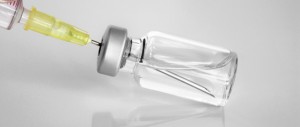 Let me first say that I firmly believe the decision to vaccinate is a personal one. No one should be mandated to do so by anyone. Importantly, this decision should be an informed decision and sadly far too many parents aren’t given any information of any use when it comes to what they should do regarding vaccines. Any post on vaccines here isn’t to sway you one way or another, but is simply there to provide information that I can find on the various topics that will help you make the decision that you feel most comfortable with. In this vein, I want to talk about something that rarely, if ever, is discussed when people talk about the pros and cons of vaccination – breastfeeding. While many people are aware of the benefits to the immune system that breastfeeding offers
Let me first say that I firmly believe the decision to vaccinate is a personal one. No one should be mandated to do so by anyone. Importantly, this decision should be an informed decision and sadly far too many parents aren’t given any information of any use when it comes to what they should do regarding vaccines. Any post on vaccines here isn’t to sway you one way or another, but is simply there to provide information that I can find on the various topics that will help you make the decision that you feel most comfortable with. In this vein, I want to talk about something that rarely, if ever, is discussed when people talk about the pros and cons of vaccination – breastfeeding. While many people are aware of the benefits to the immune system that breastfeeding offers
If you start doing research on vaccines, one of the things you’re told about each and every one is that your child will be immunized by getting the shots. If that weren’t the case, why bother getting them? And yet, the truth is that not all children will become immune to the diseases for which a vaccine is given. For example, the varicella vaccine (chickenpox) has a reported effectiveness of approximately 87%[2], the effectiveness of the mumps component of the MMR vaccine has been found to be as low as 69%[3], and the effectiveness of the pneumococcal vaccine fares well at 94-97%[4]. One factor many parents are unaware of is the role of feeding type in their children to the immunological response to certain vaccines. Is it really possible that how we feed our kids can affect how our body responds to a vaccine? Turns out the answer is ‘yes’ and below I’ve outlined the research on the matter for the most common childhood vaccines.
The Research
Pneumococcal (PCV)
In a study out of Sweden examining the antibody response to the PCV vaccine (serotypes 6B and 14), the authors compared children who had been breastfed for more or less than 90 days[5]. The children who did not reach the required antibody response for the PCV serotype 6B were nearly all breastfed less than 90 days (with the exception of 1 case) and at 6 months of age, children from the longer breastfeeding group had greater protection against serotype 14.
Haemophilus influenzae type B (Hib)
The same authors from Sweden who examined the PCV vaccine also examined the Hib vaccine as the two are administered together in Sweden (and elsewhere). These authors found that of the children who did not reach the minimum antibody response for the Hib, 100% had been breastfed less than 90 days[5]. In a separate study out of Canada, the comparison was done between breastfed and formula fed infants with similar results[6]. At both 7 months and 12 months, infants who were breastfed had significantly greater antibody levels than the infants who were formula fed. A more recent study also suggests that the immune response to the Hib vaccine is more pronounced in infants breastfed less than 6 months compared to those breastfed greater than or equal to 6 months[7].
Diphtheria-Tetanus-Pertussis (DTaP)
The diphtheria, tetanus, and pertussis vaccine is given at multiple time points, but results of a comparison between breastfed and formula fed infants on the effectiveness of the three components at both 3-4 months of age and 21-40 months of age found that at all time points and for all components of the vaccine, breastfed babies showed a greater antibody response[8]. Importantly, this research also examined two types of formula: conventional and low-protein (to mimic breastmilk) and found that the benefits of breastmilk were greater than either type of formula. And while the two formula types were nearly always equal, the low protein formula group showed a better response to the poliovirus than the conventional formula group (but again, both showed a reduced efficacy compared to the breastfed group). This finding was confirmed in another study[9], but others have apparently not found a significant difference by breastfeeding method (though the studies cited by Wold and Adlerberth are unavailable to me online and thus I am unable to ascertain if there is another reason why they might not find any statistically significant differences)[10].
The evidence of feeding type on the MMR vaccine is interestingly mixed. In a study from Canada, researchers found that the response to the MMR vaccine from breastfed infants was significantly better and more targeted than that of formula fed infants[11]. In fact, in their findings, only the breast-fed infants showed an increase in certain cells associated with an appropriate immunological response. However, other authors have pointed out that in this study, the level of measles plaque neutralizing antibody was lower in breastfed infants[10], suggesting the opposite of what the authors initially reported and found with respect to other measures of antibodies in the system. Interestingly, the reason for lower neutralizing antibodies with live viruses in breastfed infants is due to the fact that the virus was unable to replicate in the gut and the “enhanced clearance of virus… due to anti-viral secretory IgA antibodies and other factors in breast milk”[10]. So even when the argument is made that formula-fed infants can show an increased immune response, it’s only because of the better general immune response of being breastfed.
Polio
One early study from the 1970s found no effect of bottle feeding or breastfeeding on the efficacy of the poliovirus vaccine[12]. This was replicated in a more recent study which included duration of breastfeeding (less than six months versus greater than or equal to six months) as a factor of interest in the efficacy of the polio vaccine[11].
Rotavirus
One meta-analysis has combined the research and found an adverse effect of breastfeeding on the efficacy of the oral rotavirus vaccine[13]. When studies were combined, only 48% of breastfed infants showed signs of immunity whereas 70% of formula-fed infants demonstrated immunity responses. However, a later analysis found that the adverse affects of breastfeeding were generally non-significant and could be countered by administering 3 doses of the rotavirus vaccine instead of 1[14] (whether or not this is deemed too many shots is entirely up to you).
Hepatitis A
I could not locate any studies that examined the efficacy of the Hepatitis A vaccine by feeding method.
Hepatitis B
I could not locate any studies that examined the efficacy of the Hepatitis B vaccine by feeding method.
Conclusions
While there’s no one conclusion that can be made for the role of feeding type with vaccinations, some general conclusions (plural) are warranted. First, for non-live vaccines, there is evidence that breastfeeding enhances the immunological response for infants. That is, a breastfed child has a better chance of reaching the threshold necessary to say they are “immune”. This doesn’t mean that formula-fed infants won’t reach it, but that a greater proportion won’t. Second, in some cases (e.g., PCV, Hib) even the duration of breastfeeding seems to have an effect on the immune response, with longer breastfeeding being related to better immunity. Third, the results for live vaccines (e.g., MMR) seem less conclusive. While some research suggests a better immune response for breastfed babies, others suggest the opposite. Interestingly, the research that suggests a better immune response for formula-fed babies acknowledges that the reason seems to be that breastfed babies somehow remove the live virus from their systems more efficiently (without developing the full antibodies). To me, this suggests that the system of the breastfed baby is generally healthier and better able to handle infection (I’m sure raising the question for some about the utility of the vaccines in these cases, but remember the vaccine is a tiny dose relative to the actual disease).
In short, while the immunological response is high for all infants, it’s not perfect, and there does seem to be an effect of feeding type. In discussing the timing and doses of vaccines, parents may want to consider this to help maximize efficiency of the vaccines.

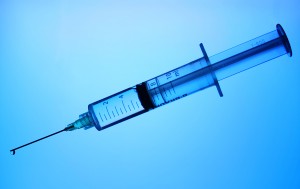

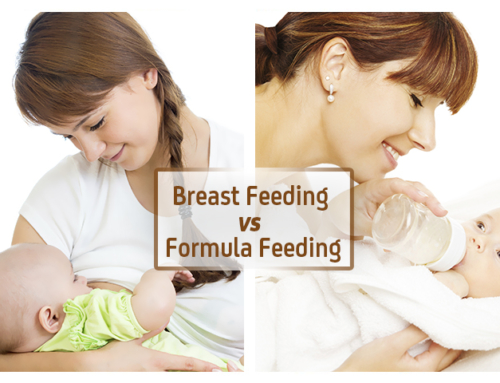

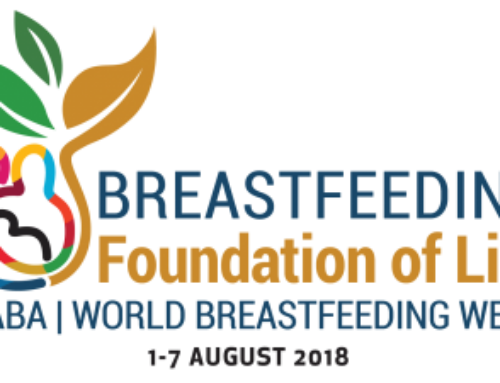
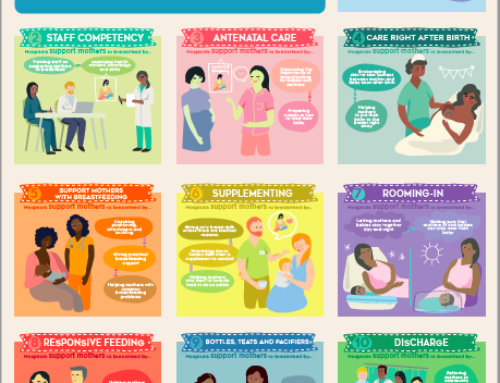
[…] the rest here: Breastfeeding and Vaccines | Evolutionary Parenting | Breastfeeding … Tags: bottle-fed, breastfeeding, children, efficacy, feeding-type, formula, immune-response, […]
[…] vaccine[12]. This was replicated in a more recent … … Read the original here: Breastfeeding and Vaccines | Evolutionary Parenting | Breastfeeding … ← Constipation in Babies Breastfeeding | CONSTIPATION […]
Interesting. I think I’ve mentioned it to you before but both my father and I caught the mumps in our early 20’s despite vaccine and advised boosters. We were both breastfed too. I have heard of peds actually telling moms to stop breastfeeding and formula feed for the week surrounding a live vaccine. (Which I find just scary!)
I actually have to give you some credit here – I’d had this on my list of things to blog about for AGES and it was your comment about getting the mumps that brought it to my attention again and decided to do it 🙂 I really wish vaccination weren’t so complicated or iffy. It would be so much nicer to have it be the way it theoretically is supposed to be!
[…] https://gku.flm.mybluehost.me/evolutionaryparenting.com/?p=632 Tweet Share Source: emzirme ve aşı, breastfeeding and vaccine, emen bebeğe aşı […]
You may be interested in looking into why breastfed babies have better immune responses. Are they actually forming an immune response to the injection or are they showing transferred immunity from the mother? In cats and dogs, where we get the majority of our research on vaccine response, the maternal antibody often overrides any immunization we try to confer to the animal. It would seem to me that the same may be held true for humans. If I was a stronger proponent, I’d take my son in for titer tests and see what he is showing antibody levels for – he’s never been immunized and he is breastfed (exclusive for six months, and extended to his current 21 months). My guess is he would show titer results of transferred immunity from my maternal antibodies. Which means it would help make immunity look good in a breastfed baby, even if the baby did NOT receive any immune mediated memory cells from the vaccination, but just from the mother.
I had the same question about this! I imagine it will be a long time before we see any studies on this though!
Another part of this, that we won’t likely see much research effort on, unless more focus goes towards the issues of waning immunity (the main cause of the rise in pertussis) , is whether maternal antibodies from vaccinated mothers will be as strong or even present at all. So my mother had measles as a kid and passed on her immunity to me via breast milk, but I was vaccinated against measles, I wonder if the antibodies I pass on to my daughter are as strong. I am curious/concerned about the multiple generations of vaccinated people, and how that will impact long term population wide immunity. This is where the whole thing is such an experiment because we haven’t seen the impact of multiple generations of immunity via vaccines versus disease.
Sage, from what I understand the antibodies produced IF you had an immune response from your vaccination are not the same as a natural immune antibody. Therefore, again this is how I understood the research I read, you can’t pass on the immunity to your child. A naturally produced antibody is passed on both through the placenta and breastmilk of a protected mother to a child. This is why vaccinated mothers don’t pass on protection to their babies, and why doctors are pushing for vaccines at younger and younger ages. The problem with vaccination on a baby this young is their immune system refuses to recognize the stimulant (vaccine) because the immune system is too immature to focus on small attacks – in order to counter this natural protective reaction from the body, doctors are overwhelming the infant with multiple attacks (three in one vaccines for example) and by ‘booster’ shots (re-infection). The only way to bypass our natural built in protection as infants is to overwhelm the developing immune system, essentially ‘forcing’ it to acknowledge the attack. Hopefully as people become more aware of what we are doing to herd immunity by vaccinating babies and toddlers (bad news) more and more people will opt to not vaccinate daughters, so they can pass on natural immunities to their children.
[…] Imetyksen pituus vaikuttaa siihen, miten hyvän immuniteettisuojan lapsi saa rokotteista. Useissa rokotteissa pitkään imetetyt (tutkimuksissa oli verrattu joko yli 3kk tai yli 6kk imetettyjä lapsiin, jotka saivat korviketta) saavuttivat paremman vasta-ainetason taudille kuin vähemmän aikaa imetetyt. Tosin muutaman rokotteen kohdalla vaikutus oli päinvastainen, koska imetettyjen lasten immuunipuolustus oli niin vahva, että se tuhosi rokotteen virukset ennen kuin riittävä vasta-ainetaso ehdittiin saavuttaa. Täältä voi lukea aiheesta lisää. […]
Great article, Tracy. How interesting to learn that breastfeeding can actually lower or raise vaccine response. Perhaps an underlying mechanism is it builds a strong immune system based on raising Bifidobacteria responsible for antibody production. I wrote this article about it recently, surmising breastfeeding may actually guard against vaccine injury due to raising bifidobacteria:
http://www.greenmedinfo.com/blog/vaccine-injury-biological-plausibility-microbial-predisposition
In Part 2 yet to be published I explore the reciprocal relationship between the immunne system and microbiota, i.e., bifidobacteria in Peyer’s patches, and have linked your excellent article.